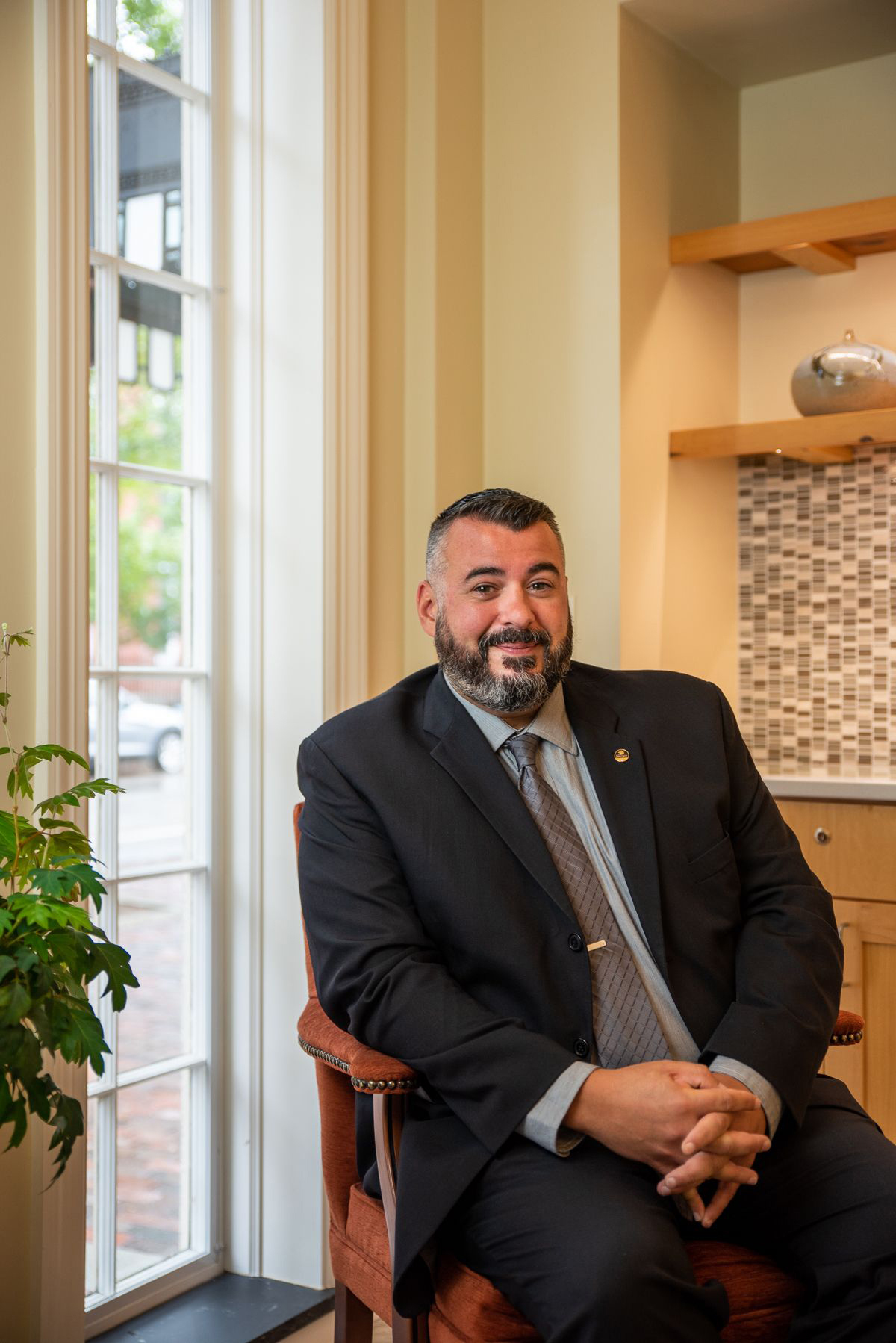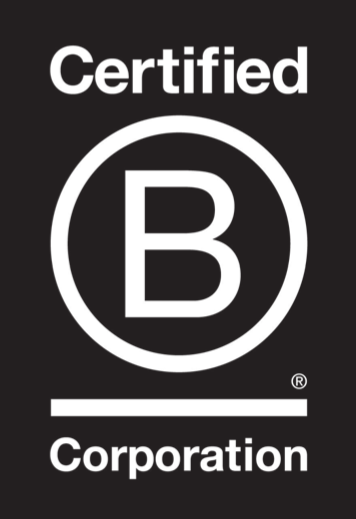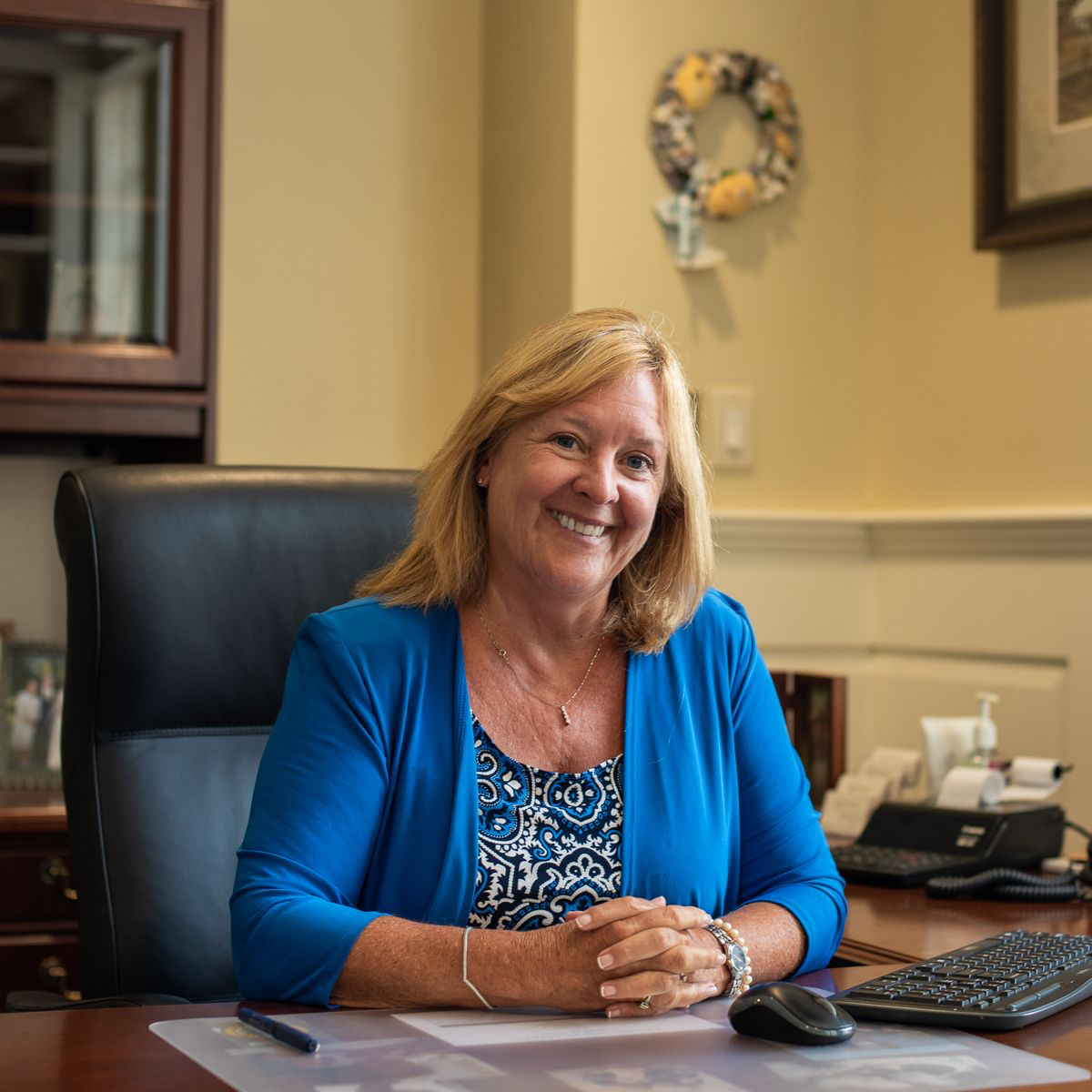How Piscataqua Savings Bank accomplished certification

Tony Cabral, senior vice president and senior information technology officer at Piscataqua Savings Bank in Portsmouth, was the bank’s point person in its recertification as a B Corp.There’s a line in the 1992 movie “A League of Their Own” spoken by Tom Hanks’ character, coach Jimmy Dugan, on the difficulty his team of women face playing the game of baseball. “If it wasn’t hard, everyone would do it,” Dugan says. “It’s the hard that makes it great.”
It’s an apropos line for companies wishing to become certified and recertified as B Corporations.
It’s hard to do. If it was easy, every company would do it. But the result, a B Corp-certified company will say, is worth it.
Piscataqua Savings Bank is a case in point. The bank was recertified recently as a B Corporation.
In doing so, it joins Mascoma Bank as the only two New Hampshire-based banks with B Corp certification, which means, according to its governing group, they meet “high standards of social and environmental performance, accountability and transparency.”
Piscataqua Savings, based in Portsmouth, underwent an “extremely rigorous process” to renew its certification, according to Tony Cabral, its senior vice president and senior information technology officer, underscoring its commitment to do “business for good.”
“If a business is willing to put in the time and effort that is required to become one, that’s a business that is running with these important questions and values at its heart,” said Cabral.
B Corporation certification is not a government-run or -mandated process. The NH Banking Department, for instance, has no say or involvement in the process that certified the two New Hampshire banks as B Corporations.
A B Corp certification isn’t just for banks; it’s for any business willing to undergo the rigorous review and documentation process.
That process is controlled by B Lab. Founded in 2006, it awards the B Corporation certification as proof a company has met certain standards and conditions of transparency, accountability, sustainability and performance, with an aim to create value not only for shareholders but for the community and society. The “B” stands for beneficial.
A prime corporate example of a B Corp in New Hampshire is Stonyfield Farm, the organic yogurt maker and dairy company located in Londonderry. It has a section on its website devoted to its certification: “… we aspire to use the power of markets to solve social and environmental problems.”
For Piscataqua Savings, good social practice is good business practice, according to president and CEO Joan Gile.
“We’ve gained customers because of it,” she said. “Most banks give back to the community and do wonderful things for their employees. But the certification process is grueling. There is a lot of documentation, and it’s a lot of work. But having that Good Housekeeping seal really tells people that we take it seriously.”
‘A natural fit’
Piscataqua Savings Bank was first certified as a B Corp in May 2019.
According to Gile, the effort then was spearheaded by her predecessor, Rick Wallace, and it reflected a desire to essentially codify community-based practices that Gile said the bank has been practicing since its founding in 1877.
“Because we are a mutual savings bank, we are able to base our decisions on what is best for our customers, our community, our employees and our environment and not on shareholders’ earnings,” she said. “The B Corp certification is a natural fit and makes us accountable for keeping people and planet before profit. We have operated this way since 1877.”
Recertification is required every three years, and this time around it was Cabral who served as the point person.
“What we found in recertification is that it touched so many different aspects of the business,” he said. “No one person could do it. You had a lot of work from the HR department, from the finance department, and so I was really kind of just being the point person of pulling all the information together.”
There are five categories to satisfy B Corp criteria: governance, employees, community, environment and customers.
“As you start looking and breaking down each one of those areas, there’s different levels of impact, and that’s what I really like about this,” said Cabral. “They made this a tool. Transparency is one of the big things, and you can see your measurable impact in each one of the categories, and you can go into another business and see the same thing.” Every company is on equal footing in terms of the B Corp criteria and how they’re scored.
Piscataqua Savings Bank’s recertification score was 97.1, more than 16 points above its original certification score of 81 in 2019.
To exceed a previous score is considered quite a feat, according to Cabral, because B Lab keeps raising its degree of difficulty.
“The B Corp movement has really gained a lot of traction, and so they saw this huge influx of other companies trying to become a B Corp, so what the B Labs did is they keep raising the bar,” he said.
Not everyone can do it, according to Cabral, because it’s so involved.
“I’ve talked with one company. They actually started down the process and then realized what was involved with it and they actually stopped,” he said.

Gile is president and CEO of Piscataqua Savings Bank in Portsmouth, one of only two New Hampshire-based banks to be B Corp certified.
‘Educational process’
There are external and internal elements associated with B Corp responsibilities.
In its 2022 annual report, Piscataqua Savings cited $161,000 in donations to 114 organizations, 3,401 volunteer hours by employees, host to 25 blood drives that collected 671 pints, and $30,000 in Community Development Finance Authority tax credits.
It’s also a matter of ingraining B Corp values into the day-to-day operation in everything from eliminating plastic use (such as disposable water bottles) and reducing use of paper to picking minority-owned vendors.
Embracing those values is a part of employee evaluations, according to Gile. “We became a B Corp, so it’s been not really a culture shift, but it’s an educational process for the staff. We’ve been gradually adding more and more, making everybody more accountable for the day to day,” she said.
For Cabral, he started thinking about the recertification three years hence even while he was coordinating the current recertification. “We’re already in the process of setting goals, and some of these goals will take about that long to be able to implement,” he said.
Coincidentally, the marketing agency that does work for the bank, Stout Heart of Portsmouth, pursued and received its first B Corp certification in May.
“Stout Heart has woven ethics into its mission since its inception,” said Mariah Morgan, Stout Heart’s principal and founder. “The B Corp certification has been a gratifying one and largely an exercise in ‘walking the walk’ when it comes to operating a business that uses its power for good.”
Stout Heart secured an overall score of 94.9 on its B Impact Assessment.
A B Corp. certification is proof a company has met certain standards and conditions of transparency, accountability, sustainability and performance.